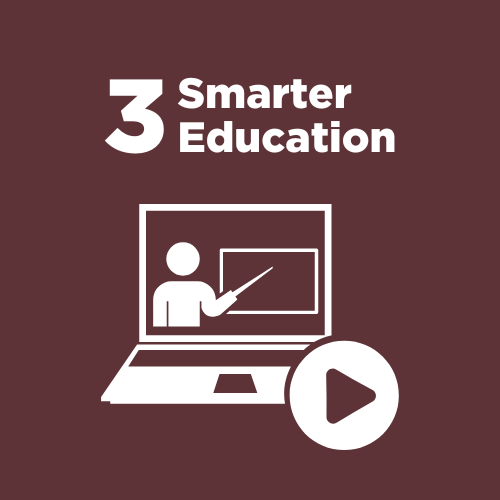Budget limitations for the development of smart technologies for online learning
Registration: 24 Sep 2022 to 31 Oct 2022Submission: 25 Oct 2022 to 31 Oct 2022
Participanting Teams: 8
Submissions: 1
LGU: Cauayan City
Themes: Regional OrganizationsBusiness and Civil SocietyClimate ChangeSustainable InfrastructureFood and SecurityEducation and Occupational Immobility
Categories: Smarter Education
Login to join challenge

Education plays a vital role in empowering communities. Now, that education goes digital, other means to deliver instructions were also employed to integrate technology into teaching and support education continuity even in the midst of a pandemic.
Lately, the normal delivery of instruction shifted to online formats where many of the students hardly adjusted to the mechanisms introduced due to inaccessibility of resources such as but not limited to internet connection and laptops/computers/mobile phones. There was also a challenge in the scheme of instruction as other activities require physical intervention to execute learning and assess whether students grasp the lessons. The City of Cauayan is one of those cities in the country that are experiencing the same challenge. Insufficient budget is one of the main reasons why the delivery of integrated education is hard to achieve.
The conduct of this Hackathon seeks to consolidate data-driven solutions to align budgeting and source out budgets from the government to improve the education status of the city. With Smart Technologies for online learning, technological innovations and interest in data analytics among students will likely prosper and help the country in establishing a data-literate community.
The following use-case statements are your guide to help you align your intention in addressing areas of this challenge:
a. How can data and technology help define budgeting priorities to support Smart Technologies for online learning and address the digital divide?
b. How can data and technology help the LGU encourage International and local Financial Institutions to provide financial investment to enhance education and produce graduates?
c. How can data be transformed into actionable insight to encourage the government to support digital infrastructures aiding the need to combat illiteracy?
d. How can data and technology provide energy and cost-efficient digital platforms supporting the integration of educational mechanisms in the City?
e. How can data and technology help the LGU provide financial assistance to support students who want to acquire degrees in Agriculture, Fishery Science, Food Technology, and allied fields to address the issues of hunger and food insufficiency?
f. How can data and technology address budget limitations to provide access to free education and secure employment afterward?
Lately, the normal delivery of instruction shifted to online formats where many of the students hardly adjusted to the mechanisms introduced due to inaccessibility of resources such as but not limited to internet connection and laptops/computers/mobile phones. There was also a challenge in the scheme of instruction as other activities require physical intervention to execute learning and assess whether students grasp the lessons. The City of Cauayan is one of those cities in the country that are experiencing the same challenge. Insufficient budget is one of the main reasons why the delivery of integrated education is hard to achieve.
The conduct of this Hackathon seeks to consolidate data-driven solutions to align budgeting and source out budgets from the government to improve the education status of the city. With Smart Technologies for online learning, technological innovations and interest in data analytics among students will likely prosper and help the country in establishing a data-literate community.
The following use-case statements are your guide to help you align your intention in addressing areas of this challenge:
a. How can data and technology help define budgeting priorities to support Smart Technologies for online learning and address the digital divide?
b. How can data and technology help the LGU encourage International and local Financial Institutions to provide financial investment to enhance education and produce graduates?
c. How can data be transformed into actionable insight to encourage the government to support digital infrastructures aiding the need to combat illiteracy?
d. How can data and technology provide energy and cost-efficient digital platforms supporting the integration of educational mechanisms in the City?
e. How can data and technology help the LGU provide financial assistance to support students who want to acquire degrees in Agriculture, Fishery Science, Food Technology, and allied fields to address the issues of hunger and food insufficiency?
f. How can data and technology address budget limitations to provide access to free education and secure employment afterward?